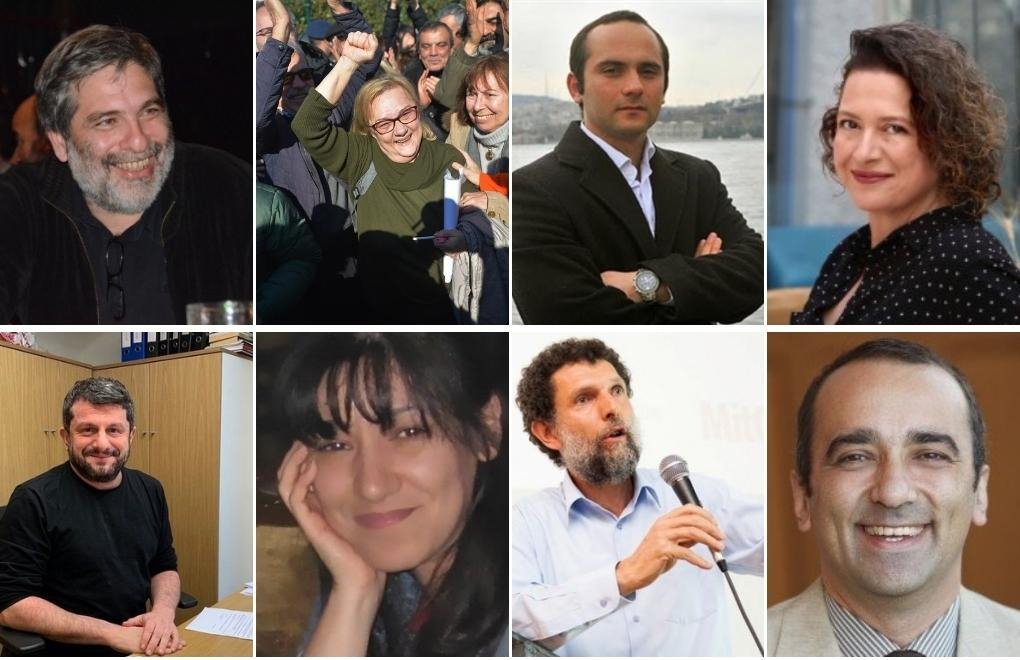The Supreme Court of Appeals of Turkey has upheld the convictions of five defendants including prominent businessman and civil society leader Osman Kavala in the Gezi Park trial, while it overturned the convictions of three others, the state-run Anadolu news agency reported on Thursday.
Among the five defendants whose convictions were upheld are, in addition to Kavala, human rights lawyer and Workers Party of Turkey (TİP) lawmaker Can Atalay, journalist and film producer Çiğdem Mater, city planner Tayfun Kahraman and filmmaker Mine Özerden.
Regarding the three defendants whose convictions were overturned, the court ruled for the release of two — architect Mücella Yapıcı and writer Hakan Altınay — from prison on judicial probation, while another defendant, activist Yiğit Ali Ekmekçi, will continue to stay behind bars during his retrial.
An İstanbul court in April 2022 sentenced Kavala to life in prison and the other seven co-defendants to 18 years each on charges related to the anti-government Gezi Park protests of 2013.
They were convicted of attempting to overthrow the Turkish government for their alleged role in the protests, which began over an urban development plan in central Istanbul and spread to other cities in Turkey.
The ruling sparked international condemnation as well as protests across Turkey for being politically motivated.
The decision of the 3rd Criminal Chamber of the Supreme Court of Appeals on Thursday also led to widespread condemnation.
Emma Sinclair-Webb, Europe and Central Asia associate director of Human Rights Watch, said on her X social media account that Turkey’s top appeal court’s decision to uphold the “baseless convictions” of Kavala to life imprisonment and Mater, Atalay, Özerden and Kahraman to 18 years in the Gezi trial is a ”monstrous abuse of the justice system, proof that courts obey the presidency.”
Ali Yıldız, a Brussels-based lawyer, also said on X that the Gezi trial was an expression of pure revenge dressed up as a judicial proceeding. “The courthouses are battlefields for Erdoğan, where he silences his opponents through ‘lawfare’,” he said, referring to President Recep Tayyip Erdoğan’s control of the judiciary.
Yapıcı, who was released from the Bakırköy Women’s Prison in İstanbul on Thursday evening, slammed the court’s decision to uphold the convictions of the five co-defendants, saying: “We were all innocent. I don’t understand what kind of justice this is.”
Turkey, which many say underwent an erosion in the rule of law following a coup attempt in 2016, was ranked 116th among 140 countries in the rule of law index published by the World Justice Project (WJP) in October 2022.
The Gezi Park protests in 2013 erupted over government plans to demolish Gezi Park in Taksim. They quickly turned into mass anti-government demonstrations that were violently suppressed by the government, leading to the death of 11 protestors due to the use of disproportionate force by the police.
A leading figure in Turkey’s civil society, 66-year-old Kavala was born in Paris, educated in the UK and ran a cultural center before being thrust to prominence. He was accused of financing protests against the then-prime minister and current president Erdoğan’s government during the large-scale protests in 2013 and involvement in a failed military coup in 2016.
Kavala’s plight had soured relations between Ankara and Western nations, and a diplomatic crisis was triggered in 2021 when Turkey threatened to expel 10 Western ambassadors, including the US envoy, after they demanded Kavala’s release.

